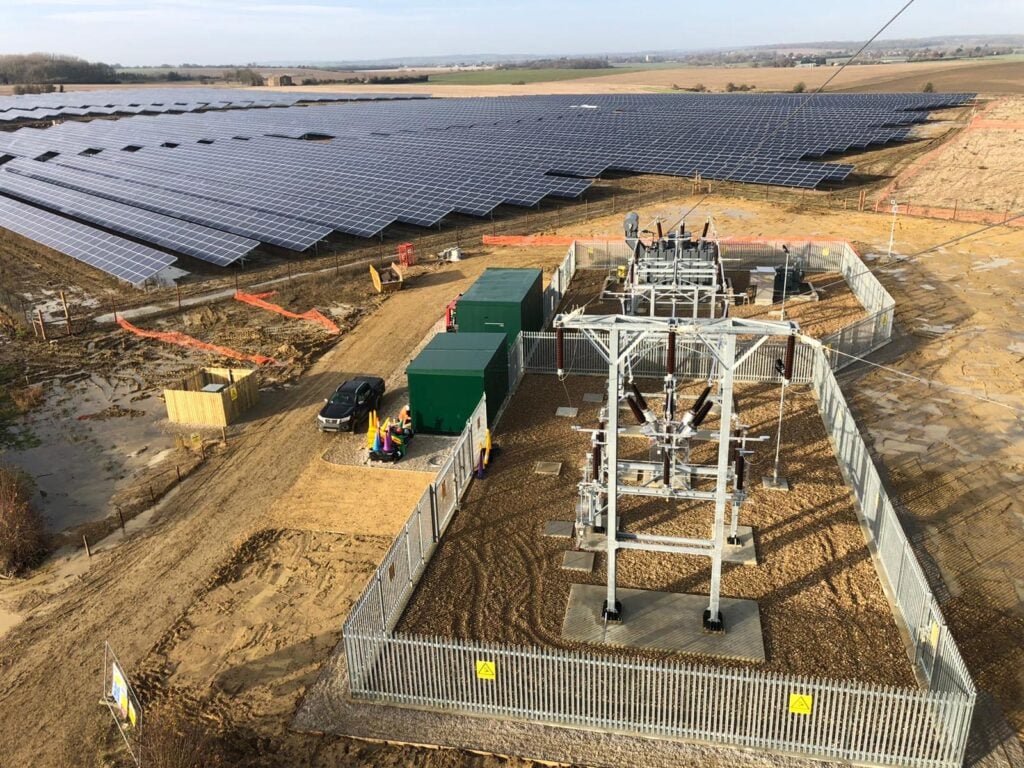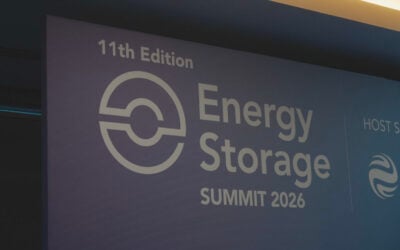
London Stock Exchange-listed solar PV investor NextEnergy Solar Fund (NESF) has signed a £100 million (US$136.8 million) Joint Venture Partnership (JVP) with battery storage specialist Eelpower.
Together they will look to establish a portfolio up to 250MW of battery energy storage assets, and have already acquired a 50MW ready-to-build standalone battery located in Fife, Scotland. This maiden asset is expected to be energised and connected to the grid in 2022.
The move forms part of NextEnergy’s decision to diversify its portfolio of over 99 operating solar assets. This extended investment mandate was approved by shareholders in September 2020, with up to 10% of the fund’s gross asset value to be invested in standalone energy storage systems.
A listed fund of solar investment and asset management group NextEnergy Capital, NESF had deployed 893MW of solar PV as of the end of June this year, according to the company’s website and has a current market cap of £588 million.
Try Premium for just $1
- Full premium access for the first month at only $1
- Converts to an annual rate after 30 days unless cancelled
- Cancel anytime during the trial period
Premium Benefits
- Expert industry analysis and interviews
- Digital access to PV Tech Power journal
- Exclusive event discounts
Or get the full Premium subscription right away
Or continue reading this article for free
Through the JVP, NextEnergy will own 70% and Eelpower 30% of the portfolio.
“This is an exciting deal and opportunity for NESF as we introduce the first standalone utility scale battery project to the fund,” said Ross Grier, UK managing director of NextEnergy Capital.
“We have been involved in the energy storage space for several years, having acquired two small-scale batteries back in 2017. It is encouraging to see that battery technology is now at a stage where it is feasible to introduce projects like this to the NESF portfolio.”
The maiden project acquired through the JVP offers multiple revenue opportunities, including arbitrage energy trading in the UK’s £14 billion electricity market, contracts within the Capacity Market and providing ancillary services including Firm Frequency Response and Dynamic Containment.
NextEnergy and Eelpower’s joint venture represents around half of the former’s targeted 500MW pipeline of UK energy storage assets. In addition to this the company is working to develop a 400MW pipeline of international solar, bolstered by recent strong financial results thanks to high power prices.
Eelpower has also been looking to expand its portfolio of assets recently, signing another joint venture with SUSI Partners in January for 1GW of storage.
“Since 2015, the Eelpower team has defined and developed this sector and is delighted to partner with NESF to lead the next stage of the UK’s energy transition,” said Mark Simon, CEO of Eelpower.
This article first appeared on Solar Power Portal.





